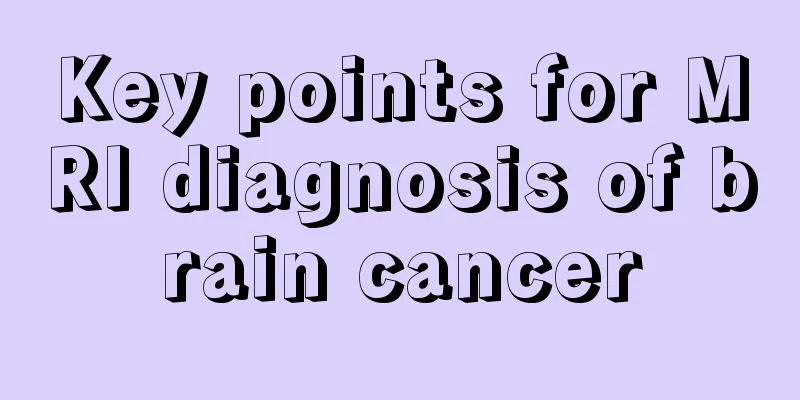What are the symptoms and dangers of colon polyps?

|
Colon polyp refers to an extra polyp in the patient's colon. The causes of colon polyp may be related to viral infection, aging, drinking, smoking and other bad habits. After the development of colon polyps, it is easy to cause blood in the stool and cause inflammation, and the patient may also experience abdominal distension, pain and other symptoms. Let’s take a closer look at the symptoms and dangers of colon polyps: 1. Blood in the stool Patients with colon polyps will have intermittent blood in the stool or blood on the surface of the stool. The color of the blood is mostly bright red. If secondary inflammatory infection occurs, mucus or bloody mucus in the stool may appear. Patients will have tenesmus, or even constipation or increased frequency of bowel movements. If the polyp is located close to the anus, the polyp may protrude from the anus. 2. Changes in bowel habits Changes in bowel habits mainly include changes in the frequency and timing of bowel movements, or unexplained constipation or diarrhea. If constipation and diarrhea occur alternately, you must pay attention, as this may be a manifestation of colon polyps. 3. Abnormal stool characteristics For normal people, the stool should be round in shape, but for patients with colon polyps, the stool may become thinner or flat due to the squeezing of the polyps, and sometimes even contain blood. 4. Abdominal pain This situation is relatively rare in patients with colon polyps. Generally speaking, it occurs in patients with more severe colon polyps. Larger polyps can cause intussusception, resulting in intestinal obstruction and abdominal pain. 5. Prolapse When polyps are large or numerous, gravity pulls on the intestinal mucosa, causing it to gradually separate from the muscle layer and prolapse downward. The traction caused by the patient's defecation movement and the stimulation of intestinal peristalsis can relax the mucosal layer around the base of the rectum, which may lead to rectal prolapse. 6. Intestinal irritation symptoms When intestinal peristalsis pulls on polyps, intestinal irritation symptoms may occur, such as abdominal discomfort, abdominal pain, diarrhea, bloody stools, tenesmus, etc.! |
<<: Can Coca-Cola Cure Kidney Stones?
>>: What should I do if my nails have vertical stripes?
Recommend
Can bone metastasis of nasopharyngeal carcinoma be cured? What to do about bone metastasis
Can nasopharyngeal carcinoma bone metastasis be c...
What is the cause of lymphoma and how to prevent it
Lymphoma patients should maintain an optimistic a...
How to quickly recover a damaged tongue
Oral ulcers often occur on the inside of the mout...
What are the sequelae of pancreatic cancer surgery
In cancer treatment, no matter what kind of cance...
What method can be used to cure advanced lung cancer? Is thoracoscopic treatment of lung cancer better than open chest surgery?
With the accelerated pace of people's lives a...
How to choose sunglasses
When the weather is hot or the sun is shining bri...
Does white blood cell count of 35 to 40 indicate severe inflammation?
White blood cell count is a very common issue. Wh...
What are the developmental standards for a four-month-old baby?
When the baby is four months old, parents can sta...
Sequelae of chemotherapy for endometrial cancer
How much do female friends know about endometrial...
Freehand leg training movements
More and more people are joining the ranks of reg...
The hazards of electric heating knee pads
Many people have discomfort in their joints, so w...
Is melanoma an infectious disease?
Is melanoma an infectious disease? Malignant mela...
Cure rate of lung and pancreatic cancer
Nowadays, lung and pancreatic cancer is a relativ...
What does the nine-item test for respiratory pathogens include?
People breathe every moment, and the air they inh...
Is it contagious to eat with skin cancer?
Many patients and friends are always worried abou...









